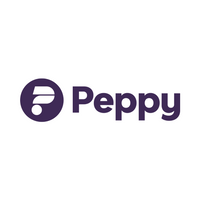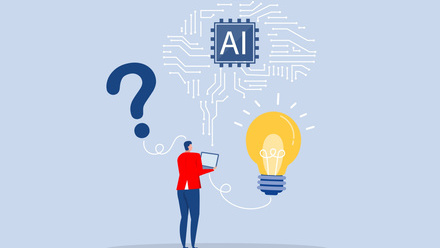Five top innovations in employee benefits technology that are here to stay

Since early 2020, a wave of digital solutions have come to the rescue of organisations and individuals at a time of immense crisis, and while vaccine passports, lateral flow tests and remote working might be phased out over time, this new era of digitally-driven employee benefits is here to stay.
Here we explore five key trends driving this employee benefits evolution in the post-Covid digital age – and highlight the pioneering brands helping organisations deliver inclusive and impactful benefits, attract leading talent and transform the employee experience for the better.
1. Digital-first healthcare support
The pandemic has revolutionised how people use digital healthcare. Recent analysis by McKinsey found use of telehealth services in the US is now 38 times higher than that of the pre-Covid-19 baseline. Of those surveyed, 40% said they would continue using telehealth in the future, up from 11% pre-pandemic.
In the UK, digital health start-up Quin found in October 2020 that the use of health apps had surged by 37%, with more than one in four saying they would rather use a health app than visit a doctor in person.
Why? Because with GP visits restricted and NHS wait times mounting, people have learned to become more trusting of digital alternatives. Digital healthcare benefits offer solutions which are accessible to more people regardless of working hours or location.
One app-based platform that has risen to meet employees’ needs is Peppy. The London-based company works with sector-leading businesses including Santander, Aviva, Mace Group and Clifford Chance to provide personalised support for fertility, early parenthood, menopause and (coming soon) men’s health.
“Peppy has evolved hugely since the start of the pandemic,” says Co-Founder and Co-CEO, Dr. Mridula Pore. “We’ve had to respond quickly to the wants and needs of our users.”
Peppy recognised the need to connect users with highly-qualified, human experts rather than an emotionless interface or chat bot.
“Digital-first solutions are here to stay, but no advancement in technology will ever truly be able to replace the power of human connection. Above all, that is what Peppy aims to maintain,” says Pore.
2. Return to work anxiety
Work-related stress, depression and anxiety were creeping towards becoming a public health emergency in the UK long before Covid-19 was first detected, accounting for 55% of all working days lost due to work-related ill health in 2019-20.
Now, new pressures have emerged impacting the mental health of those working from home or facing “re-entry anxiety” triggered by thoughts of a return to the office.
Hypnotherapy app Clementine – picked as one of the “seven apps every woman should own” by The Guardian – resolved to tackle this issue head-on.
In April, the app launched its first corporate wellness programme to support women returning to the workplace after a prolonged absence.
Called ReFrame, the initiative delivers a suite of tools, including tailored cognitive hypnotherapy coaching sessions and workshops, to help employees self-manage their mindset and alleviate anxiety.
3. Financial wellness solutions
Online financial wellness tools that help employees spend smarter, reduce debt and boost savings were already on the rise pre-pandemic. Covid-19 simply reinforced their value.
Danish startup Pleo, which doubled its customer base over the course of 2020, is one fintech solution riding the crest of this wave, having recently been valued at $1.7 billion.
Pleo promises to simplify company spending, helping today’s fragmented workforce better manage their business expenses and simplify bookkeeping.
They issue smart company credit cards with set limits that enable employees to buy the things they need for work, while keeping their accounts team in control of spending.
“The whole digitsation and automation of finance processes has been going on for a while,” Jeppe Rindom, CEO and Co-founder of Pleo, told CNBC recently. The coronavirus pandemic simply acted as an “accelerator” for the sector, he added.
4. Virtual volunteering
Remote volunteering initiatives have also sprung up in the wake of the pandemic and, as with healthcare and fintech solutions, are likely to remain long after Freedom Day.
Providing an accessible digital platform for all colleagues to volunteer is vital for team inclusiveness and engagement.
Company-sponsored volunteering has also been shown to improve an organisation’s reputation, foster a more pleasant working environment and boost employee morale (2017 Deloitte Volunteerism Survey).
In the UK, Neighbourly and Employee Volunteering are two established networks that have embraced virtual volunteering solutions, enabling colleagues from around the world to collaborate on charity projects remotely.
Projects range from donating volunteer time, money and surplus products, to delivering Covid-19 charity recovery workshops and helping guide community leaders through the challenges presented by the pandemic.
5. Remote and hybrid working
Perhaps the most significant trend driving the evolution of employee benefits over the past 18 months has been that of remote working – and its recent evolution into hybrid working.
For Arti Kashyap-Aynsley, an award-winning global wellbeing leader and global head of health and wellbeing at Ocado, digital tools like Zoom and Teams have been a great enabler of flexibility and autonomy in where and how people work.
“These tools have also been a great mechanism of support for people from a health and wellbeing perspective,” says Kashyap-Aynsley.
However, she argues, further development of collaborative tools such as Slack and Trello will be critical in bridging the gap she sees widening between in-person and remote-working workforces.
“How do we include both sides appropriately when we get people joining calls remotely and in-person? How does technology support and enable that art of gathering?” she asks.
Ultimately, recruiting a suite of employee benefits solutions that embrace these five key trends will help organisations answer these critical questions.
It should also equip them with the tools and tech needed to attract the best talent and, crucially, help retain them as we adjust to life and work after Covid-19.
This article is provided by Peppy.
Supplied by REBA Associate Member, Peppy
Peppy is a global app-based employee benefit giving employees access to expert clinical care in menopause, fertility, pregnancy, and more - trusted by 250+ companies and reaching over 3 million people.







